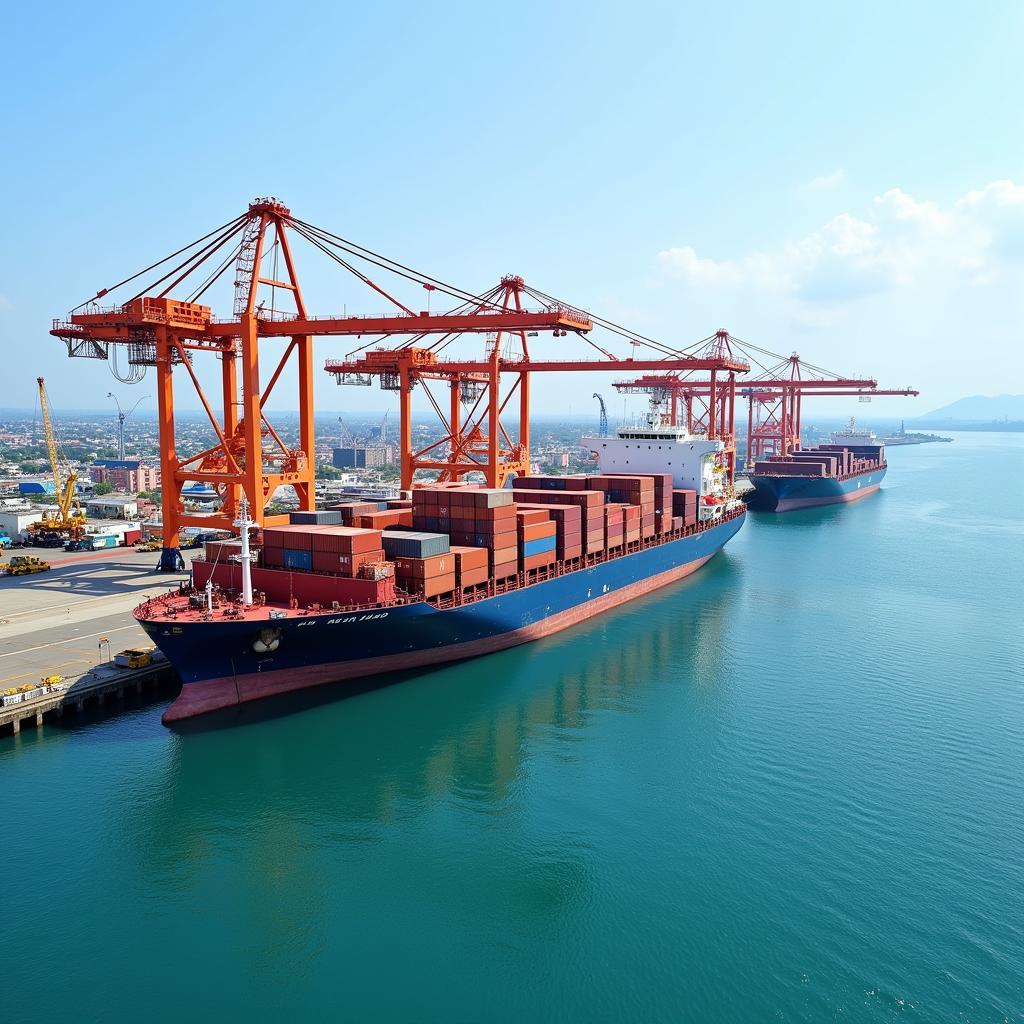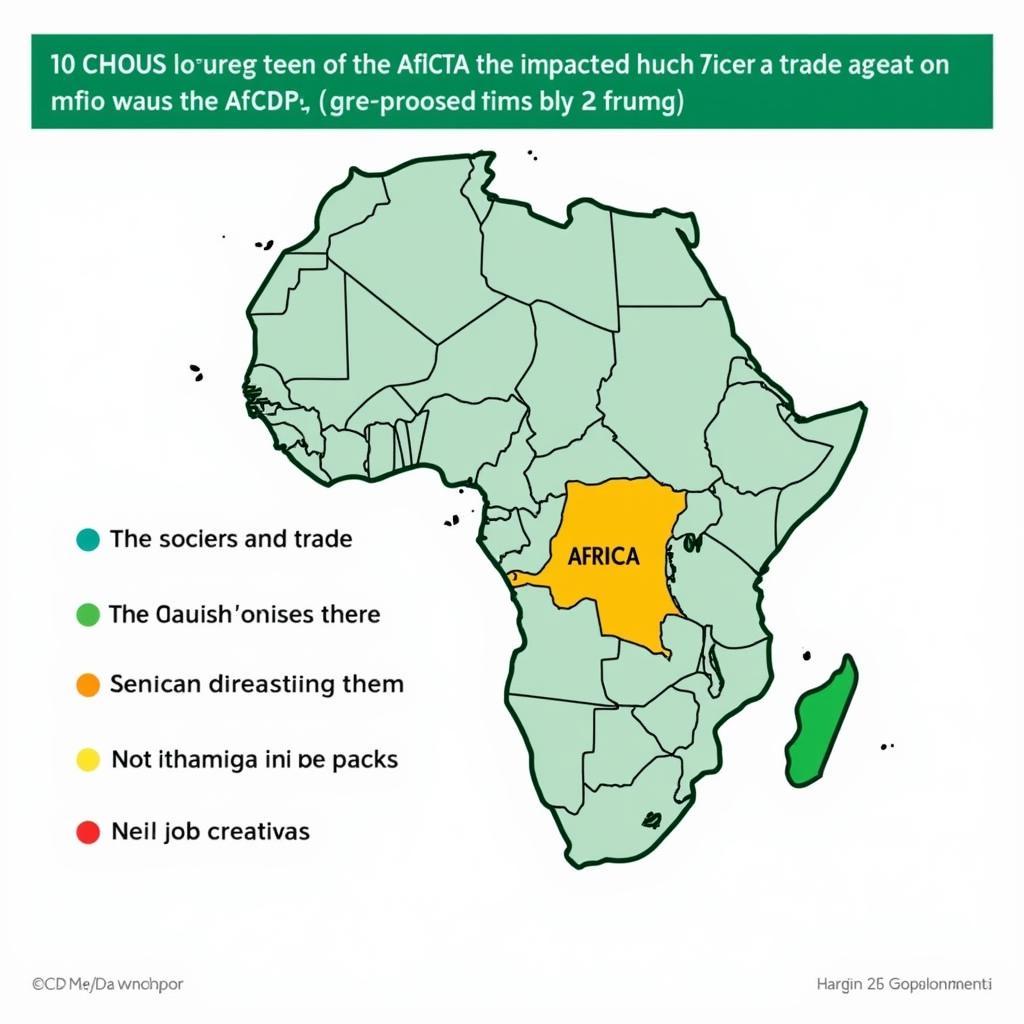Unlocking Africa’s Potential: The African Blue Economy Project
The African Blue Economy Project is transforming the continent’s relationship with its vast coastal and marine resources. This initiative recognizes the immense potential of Africa’s oceans, lakes, and rivers to drive sustainable economic growth, create jobs, and improve livelihoods. From fisheries and aquaculture to maritime transport and tourism, the blue economy offers a wealth of opportunities for African nations.
Diving Deep into the African Blue Economy Project: Opportunities and Challenges
The African blue economy project isn’t just about exploiting resources; it’s about sustainable development. It aims to balance economic growth with environmental protection, ensuring that future generations can also benefit from these valuable resources. This involves promoting responsible fishing practices, combating pollution, and protecting marine biodiversity. The project also focuses on developing infrastructure, such as ports and shipping facilities, to support trade and economic activity.
What is the African Blue Economy Project Aiming to Achieve?
The African Union has recognized the blue economy as a key driver of development and has launched several initiatives to support its growth. These initiatives focus on strengthening regional cooperation, promoting investment in blue economy sectors, and building capacity in areas such as marine science and technology. The African blue economy project seeks to address several key challenges, including illegal fishing, piracy, and climate change, which threaten the sustainability of the continent’s marine resources.
One of the major goals of the project is to empower local communities and create job opportunities, particularly for women and youth. It also recognizes the importance of traditional knowledge and practices in managing marine resources.
 Maritime Transport and Infrastructure Development in Africa
Maritime Transport and Infrastructure Development in Africa
How Does the African Blue Economy Project Tackle Sustainability?
Sustainability lies at the heart of the African blue economy project. It promotes the use of renewable energy sources, such as wind and solar power, to reduce the environmental impact of blue economy activities. It also encourages the development of eco-tourism, which generates revenue while protecting marine ecosystems. The project seeks to implement international best practices in marine conservation and management. This includes establishing marine protected areas and implementing measures to combat pollution and protect endangered species.
“The African blue economy is not just about economic growth, it’s about creating a sustainable future for generations to come,” says Dr. Aminata Sow, a leading marine biologist based in Senegal. “We need to ensure that our oceans and rivers remain healthy and productive for all.”
Investing in Africa’s Blue Future
The African blue economy project requires significant investment in infrastructure, technology, and human capital. International partnerships and collaborations play a crucial role in mobilizing resources and expertise. Many African countries are actively seeking foreign investment in sectors such as fisheries, aquaculture, and maritime transport. The project also emphasizes the need for capacity building and training to equip local communities with the skills and knowledge needed to participate in the blue economy.
“Investing in the African blue economy is investing in Africa’s future,” states Mr. Kofi Annan, a renowned economist specializing in African development. “It has the potential to transform the continent’s economy and create a more prosperous and sustainable future.”
african industries group wikipedia
Conclusion: Harnessing the Power of the African Blue Economy Project
The African blue economy project holds immense promise for the continent’s future. By harnessing the potential of its vast marine resources sustainably, Africa can unlock significant economic opportunities, create jobs, and improve livelihoods. This requires a concerted effort from governments, businesses, and communities to invest in the blue economy and ensure its sustainable development.
african economic outlook 2018 ethiopia
FAQ
- What sectors are included in the African blue economy? (Fisheries, aquaculture, maritime transport, tourism, renewable energy, etc.)
- What are the main challenges facing the African blue economy? (Illegal fishing, piracy, climate change, lack of infrastructure, etc.)
- How can the African blue economy contribute to sustainable development? (By promoting responsible resource management, creating jobs, protecting marine biodiversity, etc.)
- What role does international cooperation play in the African blue economy? (Mobilizing resources, sharing expertise, promoting best practices, etc.)
- How can local communities benefit from the African blue economy? (Through job creation, improved livelihoods, access to resources, etc.)
- What are some examples of successful blue economy initiatives in Africa? (Sustainable aquaculture projects, eco-tourism ventures, development of renewable energy sources, etc.)
- How can I get involved in supporting the African blue economy project? (Through research, investment, advocacy, or volunteering with organizations working in the sector.)
Contact Us
For assistance or further information, please contact us:
Phone: +255768904061
Email: kaka.mag@gmail.com
Address: Mbarali DC Mawindi, Kangaga, Tanzania
We have a 24/7 customer support team.
